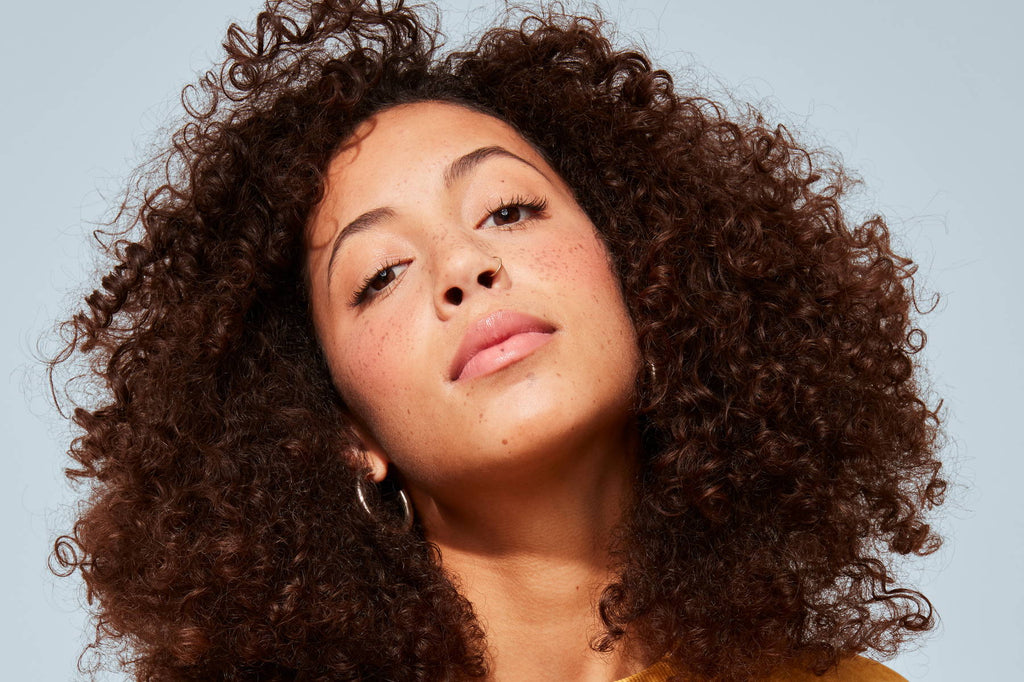Silicones may win the medal for Most Misunderstood Haircare Ingredient. In recent years, there’s been a lot of buzz about the perils of using silicones on your strands, with silicone-free products being touted as “better” for tresses.
So, what does science have to say about it? Well, like many ingredients, silicones have their pros and cons—and how they affect your mane really boils down to the type of silicone and your hair care habits. So before you swear them off for good, let’s walk through what exactly silicones are, why they may be in your conditioner or curl cream, and how to decide if they’re right for you.
What are silicones?
Silicones are a family of lab-made ingredients derived from silica (the same stuff that makes up sand). They come in many shapes and forms—you’ll find them in everything from medicine to cooking utensils—but in the haircare world, there are three types:
Water-soluble silicones
- As the name suggests, this type dissolves in water, so it easily washes clean from the hair.
- Common ones: amodimethicone, stearoxy dimethicone, dimethicone copolyol, dimethicone PEG-8 phosphate
Non-soluble silicones
- If you guessed that these do not dissolve in water, you’re correct. Non-soluble silicones can only be removed from the hair with surfactants (the cleansing ingredients in shampoos).
- Common ones: dimethicone, dimethiconol, stearyl dimethicone, cetyl dimethicone, cetearyl dimethicone, cyclopentasiloxane, behenoxy dimethicone
Evaporating silicones
- This type evaporates from the hair as it dries.
- Common ones: cyclomethicone, cyclopentasiloxane, and cyclomethicone
Why are they in hair products?
The main reason? Silicones’ frizz-taming benefits are second to none. The power’s in the thin, protective coating they form around the hair cuticle to keep hydration locked in and humidity locked out.
That barrier is also heat-resistant, which helps to reduce heat damage from blow dryers and hot irons. Added benefits include color protection, fewer tangles, added shine and soft, silky strands. Overall, they make hair look healthier and feel more manageable, which is why they’re so common.
Sounds pretty great. What’s the concern?
Since silicones form a barrier around the hair, the biggest concern is buildup. This is mainly an issue with non-soluble silicones, like dimethicone. Because this type of silicone is water-resistant, over time it can accumulate on the hair and leave a residue that blocks out good, nourishing products from penetrating strands. This can lead to #hairproblems like oiliness, dryness, dullness and scalp inflammation—hence the widespread wariness of silicone-based hair products. Though a good clarifying shampoo will generally do the trick, there’s still a risk of buildup if the product isn’t rinsed out thoroughly.
Water-soluble silicones rinse easily from the hair, so they’re much less likely to build up when used properly. Still, some people may prefer not to use any type of silicone because it’s a synthetic ingredient—although, from a scientific standpoint, synthetic ingredients are not inherently less safe or effective than natural ones.
So, are silicones bad for hair?
Silicones are perfectly safe to use on your hair—there’s no question about that. However, depending on your hair type and goals, they could be the holy grail or Achilles’ heel in your routine.
People with coarse, dry, curly or frizz-prone hair will reap the most benefits from silicone-based formulas. They’re also fabulous to have on hand if you heat-style your hair. If you’ve got fine or thin strands, keep an eye on how they respond to silicone-based products. You may opt to use them less frequently (or not at all) if you notice that they make your locks feel heavy or oily.
As we’ve learned, not all silicones are created equal. If you want the shine-boosting, frizz-controlling benefits without the buildup concerns, stick to water-soluble silicones. (We use these in several of our conditioners and styling products. They’ve all been clinically tested and shown to rinse cleanly from the hair, even with sulfate-free shampoos.)
And, as with lots of things in life, moderation is the best policy. Using too much of any product, silicone-based or not, can lead to moisture-blocking buildup on the hair and scalp. Make sure you cleanse your mane regularly and thoroughly so it’s able to absorb all those amazing nutrients in your products.
What if I don’t want to use silicones?
That’s perfectly okay! There are plenty of great silicone-free products out there that still work shining, smoothing miracles, like our Moisture Repair regimen and Hair Oil.











